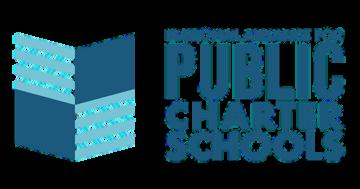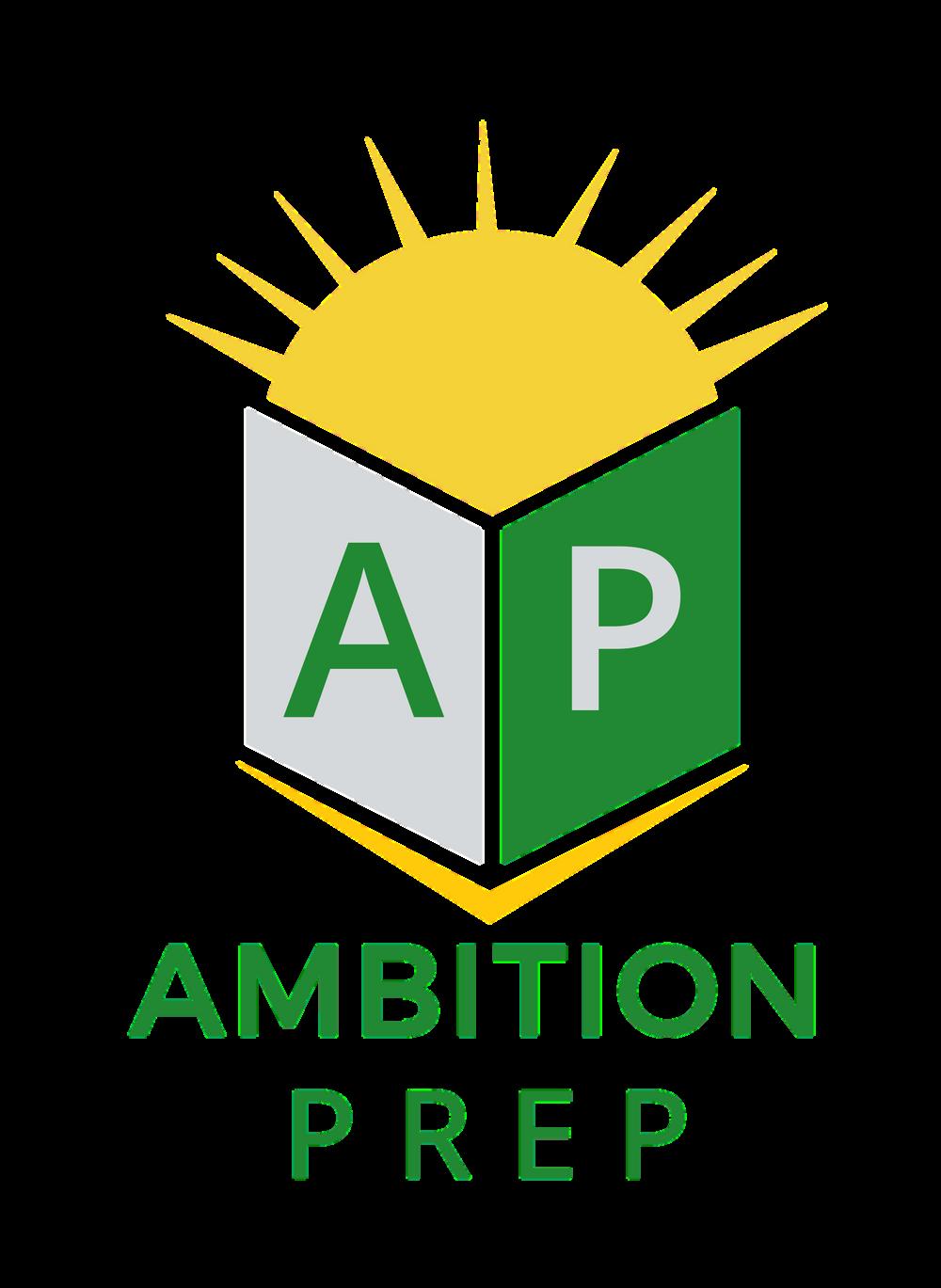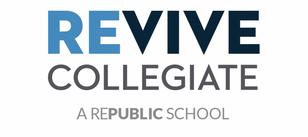Reporter's Guide: Mississippi Public Charter Schools
This guide is intended to help local media better understand public charter schools in Mississippi.
AT A GLANCE
In this guide, we provide key historical and contextual facts about charter schools and their role in Mississippi's education system over the last 10 years.
TABLE OF CONTENTS
Details About Charter Schools
Historical Context Application Process
INTRODUCTION
Story Ideas & Research Experts, Advocates, & Entities

Mississippi Charter Schools
In April 2023, Mississippi will celebrate the tenth anniversary of the Mississippi Charter Schools Act. As of January 2023, Mississippi has eight operating public charter schools with another three approved to open in the future (two are slated to open in fall 2023 and the third is tentatively scheduled to open in 2025). The eight operating schools are located in three communities–Jackson, Clarksdale, and Greenwood–while two more communities–Natchez and Canton–are expected to have schools by 2023. Together, over 3,000 Mississippi children receive their public education in a public charter school.
Despite a decade of progress, misinformation about public charter schools still abounds among the public and even in local media articles. This reporter’s guide was originally created in 2014 to help local media better understand public charter schools. In this updated version, we have included additional information to reflect the sector’s growth and to address persistent myths. This guide, though detailed, is not meant to be all-inclusive, so we have listed additional resources at the end of this document. Reporters are also encouraged to visit our website, www.mississippifirst.org, to read our latest news and publications as well as find contact information for our staff for interviews.
Mississippi First
Details About Public Charter Schools
At a glance
This section provides basic information about charter schools in Mississippi.

Understanding the Similarities Between Traditional Public Schools and Charter Schools
DEFINITION OF PUBLIC CHARTER SCHOOL
Charter schools are free, public, and open to all students in an eligible grade who reside in an eligible geography.
TYPES OF CHARTER SCHOOLS
In Mississippi, there are two types of charter schools: singlesite schools and network schools Network schools are run by a charter management organization (CMO), which typically operates at least three charter schools and serves a minimum of 300 students. Nationwide, approximately 26% of charter schools are operated by a CMO, according to the National Alliance for Public Charter Schools All CMOs in Mississippi are required by law to be nonprofits. Currently, Mississippi has only one CMO, RePublic Schools. All other charter schools in Mississippi are single-site schools with their own boards of directors
ACCOUNTABILITY
Single-Site Schools
All take state tests and receive an accountability letter grade from the Mississippi State Board of Education.
All receive local, state, and federal money to operate.
Charter Management Organizations

Like traditional public schools, public charter schools have to abide by accountability requirements. Both traditional public schools and charter schools take state assessments and receive an accountability letter grade from the Mississippi State Board of Education Charter schools are also evaluated by a performance framework designed by their authorizer, the Mississippi Charter School Authorizer Board (see next page). If a charter school does not meet the academic, financial, or organizational expectations in the performance framework, it can be permanently closed, unlike a traditional public school or district
FUNDING
Mississippi charter schools receive local, state, and federal tax dollars based on enrollment. In Mississippi, charter schools may not pass bond issues like traditional public schools. As a result, Mississippi charter schools must raise significant philanthropic funds to support their facilities costs Like traditional public schools, charter schools may also fundraise for other costs. The only source of government funding that is exclusively for charter schools is the federal Charter Schools Program grant, which provides start-up or expansion funding to charter schools for no more than five years. See https://www.mississippifirst.org/charterschool-program-grant/ for more information.
2 3
M I S S I S S I P P I P U B L I C C H A R T E R S C H O O L S REPORTER'S GUIDE All are public schools Neither can charge tuition or discriminate.
Details About Public Charter Schools
Understanding the Differences Between Traditional Public Schools and Charter Schools
Charter schools must complete an extensive application process and get approved by a state agency, known as an authorizer, in order to operate.
MISSISSIPPI CHARTER SCHOOL AUTHORIZER BOARD (MCSAB)


All public charter schools must be “authorized” to operate, which means that charter schools have undergone a rigorous application process and been granted permission to open under state law. The duty to approve charter school applications is given to entities known as “authorizers,” who are also tasked with executing school contracts (known as “charters”), developing charter school accountability and oversight policies, and determining if charter schools should be renewed or closed at the end of their terms
There is only one charter school authorizer allowed in Mississippi under state law–the Mississippi Charter School Authorizer Board (MCSAB), an independent state agency. Some states allow multiple entities to authorize charter schools For example, in our neighbor Tennessee, local school districts, the state achievement school district, or the state board of education may authorize schools. Nonprofits and universities are also common authorizers nationwide. Mississippi's creation of a single, independent charter authorizer was a political compromise between one faction which wanted only the Mississippi Department of Education to authorize schools and another faction which wanted a wide variety of entities to authorize schools This also explains why the MCSAB is composed of seven board members, one of which is appointed by the State Superintendent of Education.
GOVERNANCE
Charter schools are governed by nonprofit boards.
Charter schools are exempt from some laws and policies that traditional public schools must follow.
Charter schools can be permanently closed for poor performance. 3
One of the most important and fundamental differences between traditional public schools and charter schools is their governance model. Whereas traditional public schools are governmental entities operated by a local school district and under the purview of a local school board, charter schools are operated by an independent nonprofit with a nonprofit board of directors The contract to create a charter school (the "charter" itself) is made between this nonprofit board and the authorizer, the MCSAB. In Mississippi, charter schools are considered their own local educational agencies, which gives them autonomy from the decisions of a local school board. They are also granted exemption from specific state laws or policies of the State Board of Education
2
M I S S I S S I P P I P U B L I C C H A R T E R S C H O O L S REPORTER'S GUIDE
Historical Context
Mississippi’s first charter school law, HB1672, was signed into law on April 4, 1997 That law only allowed existing public schools to convert to charter school status on a pilot program basis. Schools interested in converting had to gain the support of their local school board through a majority vote before being approved by the Mississippi Department of Education. Only one school in the state applied to become a charter school under this law. This school, a magnet school in Cleveland called the Hayes Cooper Center, did so under the mistaken belief that they would qualify for additional grant opportunities The school remained under local school board control and was never a true charter school By the end of the school year, Hayes Cooper reverted back to a traditional district magnet school The 1997 law expired in 2009 without producing any other schools.
In 2010, after a year with no charter law, Mississippi passed the Conversion Charter Schools and New Start Schools Act of 2010. This law, which contained both charter language and state school takeover language, again proved unworkable The law only allowed charter school conversions of existing schools that had been rated failing for three consecutive years beginning in the 2009-2010 school year Shortly after the first schools would have become eligible, in 2012-2013, Mississippi had already repealed the law in favor of a better one.
In 2012, the Mississippi legislature made its first attempt at passing a real charter school law. Although a senate bill and two house bills were introduced, all of the bills died in committee or failed to be considered by relevant deadlines
TWO PUBLIC CHARTER SCHOOLS OPEN
2015
During the 2015 legislative session, the legislature passed HB859, which corrected technical problems with the funding provisions of the charter law by improving the calculation of local and state funding. It also imposed a penalty on local school districts that withhold local funding from charter schools
At the same time, the authorizer approved its second charter–Midtown Public–and both Reimagine Prep and Midtown Public opened in fall 2015.

ADDITIONAL CHANGES MADE TO THE LAW
SB2161, signed into law on April 14, 2016, contained several improvements to the charter school law. The new law allowed charter schools to give enrollment preferences to underserved students in order for schools to meet their requirement to enroll a comparable percentage of underserved students (at least 80% of the underserved percentage in the traditional district) Additionally, the law made further technical amendments to provisions pertaining to state and local funding and revised the annual audit deadline for charter schools to better align with the state’s fiscal year. The law also made it illegal for traditional districts to take reprisal action against employees for directly or indirectly supporting a charter school application. Finally, the law deleted the repealer on the Mississippi Charter Schools Act, meaning that it will never expire.
2016
r e2 0 1 3
P
Historical Context
MISSISSIPPI RECEIVES CSP; ONE SCHOOL OPENS
2017
In 2017, with major assistance from Mississippi First, the MCSAB received a federal Charter Schools Program grant. Smilow Prep, Republic’s second school in Mississippi, opened in Jackson in fall 2017.

TWO SCHOOLS OPEN ONE SCHOOL OPENS
THE PANDEMIC HITS; ONE SCHOOL OPENS; ONE SCHOOL APPROVED
In 2020, the COVID-19 pandemic hit Mississippi and shut down all Mississippi public schools, traditional and charter Most charter schools operated virtually in fall 2020 Leflore Legacy, which had been approved in 2019, opened virtually in Greenwood for its first year.
The same year, SR1 College Preparatory & STEM Academy received a charter to open a K-8 school in Canton Their opening was originally scheduled for 2022, but it was delayed again until fall 2023.

ONE SCHOOL OPENS; NEW FEDERAL GRANT
In 2022, Revive Prep (RePublic Schools) opened in Jackson. In September, Mississippi
First was awarded a $19.3M Charter School Programs grant from the U.S. Department of Education to double Mississippi’s high-quality charter schools in five years

2018
2020
M I S S I S S I P P I P U B L I C C H A R T E R S C H O O L S REPORTER'S GUIDE 2022
The Application Process: Opening a Public Charter School


This section outlines the application all potential operators have to submit Currently, MCSAB has chosen to hold only one application cycle per year. Their request for proposals is typically released in March. Interested parties must complete a letter of intent and be reviewed for eligibility. Once approved, they can then submit a full application. The full application is usually due in May. Although the law specifies the information that MCSAB must collect through the application, the MCSAB creates all application materials and questions, the process and deadlines, and the selection criteria. The full application includes the following sections:
EXECUTIVE SUMMARY
Applicants must provide a two-page overview of the proposed plan for the school, including the school's mission and vision, the educational need for the school and the target school population, the education plan or school design, the plan for community engagement, and the school's proposed leadership and governing board
ENROLLMENT SUMMARY
Applicants complete a table demonstrating the growth plan for the school, including projected enrollment and grades.
EDUCATION PROGRAM DESIGN & CAPACITY
This section requires information about the proposed curriculum and instructional design, pupil performance standards, high school graduation requirements (if applicable), school calendar and schedule, school culture, any supplemental programming, special populations and at-risk students, student recruitment and enrollment, student discipline, parent and community involvement, and the capacity of the applicant to implement these plans.
OPERATIONS PLAN AND CAPACITY
In this section, the applicant details its organizational structure. Applicants must include legal status and governing documents; information about the governing board and any advisory bodies; its grievance process; staff structure, staffing plans and plans for hiring, management, and evaluation; proposed professional development; performance management; facilities plan; start-up and ongoing operations plans; and lastly, its capacity for implementing these operational plans.
FINANCIAL PLAN AND CAPACITY
This section requires description of systems, policies, and processes the school will use for its financial operations Applicants must also submit budgets
LIST OF ADDENDA
Depending on the type of operator, new or existing, applicants have to provide certain attachments.
Once submitted, applications are checked for completeness. Complete applications move to Stage 2: Threshold Quality Review. This includes an independent evaluation of the major components of the proposal. Proposals which meet a minimum bar may move to Stage 3. Applicants are not allowed to provide any rebuttal or submit additional information at this stage if they believe their application has been misinterpreted or unfairly rejected. At Stage 3, an applicant completes a public hearing/public comment period and a capacity interview while the reviewers examine their application more fully The capacity interview is limited to 90 minutes currently and primarily focuses on clarifying questions. The MCSAB’s independent evaluators determine whether an application should be approved and write a recommendation. In general, this evaluation is based on the written application as submitted. It is unclear whether or how the capacity interview or the public comment/public hearing is weighed in this evaluation. The MCSAB then provides the reviewers’ recommendation to the applicant Although applicants were once allowed to submit additional information to rebut this recommendation or any information in it, they are now limited to a three-page response, if desired The board heavily relies on the independent evaluation, and board members often do not delve deeply into application materials. Therefore, the board has rarely rejected the recommendation of the independent evaluators–whether that recommendation is to approve or deny–although this has happened in the past. Typically, the board votes on applications in September.
Because the application process is so extensive, not iterative, and offered only once a year, the board has been very slow to approve applications. This is one of the largest reasons for the slow growth of the sector. Furthermore, because approvals happen in September, approved schools must wait until the next school year to open, meaning that school openings lag approvals by at least a year.
Story Ideas & Research
TOP STORY IDEAS
Even though charter schools have been a part of Mississippi’s educational landscape for the past 10 years, many people still do not know how public charter schools support communities and families.
PARENTS ARE HIGHLY SATISFIED WITH CHARTER SCHOOLS
Mississippi First, on behalf of the Mississippi Charter School Authorizer Board, has conducted multiple parent satisfaction surveys. This research shows that Mississippi parents support public charter schools. A reporter could interview current charter parents about why they chose a charter school to help the public understand their role in a community and how they have impacted local families.
CHARTER SCHOOLS ARE HELD ACCOUNTABLE
2019 Public Perception of Charter Schools in Mississippi Summarizes and explains Mississippi First’s findings from a public opinion poll commissioned by the Mississippi Charter School Authorizer Board.
2020 Public Perception of Charter Schools in Mississippi Summarizes and explains Mississippi First’s findings from a public opinion poll commissioned by the Mississippi Charter School Authorizer Board

NATIONAL
Data Digest and Dashboard
2021 Annual Report

State Law Ranking Report
RESOURCES
MCSAB 2020 Annual Report
Because charter schools are not under the governance of the traditional school district in their community and are exempted from some regulations, the public often believes that charter schools are not held accountable by the state. In reality, charter schools take the same state exams and receive a state grade on the same basis as traditional schools. They also are held accountable for academic, financial, and operational benchmarks by the MCSAB, and if a charter school is not performing, it can be permanently closed either at the end of its five-year term or in the interim. This stringent system of accountability makes charter schools different from traditional public schools. To date, no one has written a local article explaining the complexities of charter school accountability, an essential part of the difference between charter schools and traditional public schools
CHARTER SCHOOLS CAN INNOVATE WITH THE MOMENT
The pandemic drastically impacted public education. The state’s public charter schools were able to be more agile during such tumultuous times and have the autonomy to make the best decisions for their individual school communities, regardless of the decisions of the local district. Mississippi's charter schools each made different decisions on how to handle the needs of the pandemic and several implemented new or innovative ideas. A reporter could explore how the charter schools used their flexibility to meet the needs of the moment and how they continue to innovate
2 3
CHARTER SCHOOLS ENROLL UNDERSERVED STUDENTS
Charter schools are free, public, and open to all. In Mississippi, for the year 2021-2022 school year, nearly 97.7% of charter students were Black or Brown, and more than 96.7% came from low-income families Some members of the public still struggle to identify charter schools as public schools and have mistaken beliefs about whom they serve A local article taking the public inside charter schools could go a long way in clearing up confusion about what charter schools are, how they operate, and who attends them.
M I S S I S S I P P I P U B L I C C H A R T E R S C H O O L S REPORTER'S GUIDE
RESEARCH
Charter School Experts & State Advocates and Entities
contact@mississippifirst org
@mississippifirst
@mississippifirst
@Mississippi1st
info@embark.ms
charterschoolssupport@mcsab ms gov
charteralliance
mississippifirst org
We are a research and advocacy organization that led Mississippi’s efforts to pass a high-quality charter school law. Mississippi First is widely considered Mississippi's charter school expert and continues to lead sector support and growth projects.
Point of Contact: Rachel Canter, Executive Director
MISSISSIPPI FIRST EMBARK
embark ms
This new organization is an "incubator" that partners with school founders to help them move from an idea to school launch. Embark works with many types of school leaders, not just prospective charter school leaders.

Point of Contact: Elyse Marcellino, Director
MISSISSIPPI CHARTER SCHOOL AUTHORIZER BOARD
https://www.charterschoolboard.ms.gov/
This is the state agency responsible for approving and overseeing public charter schools.
Point of Contact: Dr. Lisa Karmacharya, Executive Director
MISSISSIPPI CHARTER SCHOOLS ASSOCIATION

This organization is slated to relaunch in late 2023. It will serve prospective and current charter school operators in Mississippi through advocacy and technical assistance
NATIONAL ALLIANCE FOR PUBLIC CHARTER SCHOOLS

publiccharters.org/
This is a national advocacy organization recognized as a leader in educating the public about charter schools across the nation.
M I S S I S S I P P I P U B L I C C H A R T E R S C H O O L S REPORTER'S GUIDE
Soon!
Coming
MISSISSIPPI PUBLIC CHARTER SCHOOLS
Founded in 2015
Located in Jackson
514 Students in 2022-2023 (5-8)
Grades at Full Enrollment: 5-8
School Leader: Tresandria Hubbard
republiccharterschools org/ourschools/reimagine-prep
Founded in 2015
Located in Jackson
284 Students in 2022-2023 (4-8)
Grades at Full Enrollment: 4-8
School Leader: Kevin Parkinson midtownpublic org
Founded in 2017
Located in Jackson
577 Students in 2022-2023 (5-8)
Grades at Full Enrollment: 5-8
School Leader: Rasaan Powell
republiccharterschools org/ourschools/smilow-prep



Founded in 2018
Located in Jackson
569 Students in 2022-2023 (K-4)
Grades at Full Enrollment: K-4
School Leader: Ebonie Ross republiccharterschools.org/ourschools/smilow-collegiate
Founded in 2018
Located in Clarksdale
511 Students in 2022-2023 (K-6)
Grades at Full Enrollment: K-8
School Leader: Amanda Johnson
clarksdalecollegiate.org
Founded in 2019
Located in Jackson
395 Students in 2022-2023 (K-4)
Grades at Full Enrollment: K-8
School Leader: DeArchie Scott
ambitionprep.org



Founded in 2020
Located in Greenwood
241 Students in 2022-2023 (6-8)
Grades at Full Enrollment: 6-8
School Leader: Dr. Tamala Boyd Shaw
leflorelegacyacademy org


Founded in 2022
Located in Jackson
Current Students Enrolled 150 in 2022-2023 (K-1)
Grades at Full Enrollment: K-8
School Leader: Dr. Trish Dean republiccharterschools org/ourschools/revivecollegiate/
View In-Depth Profiles of Each Public Charter School















